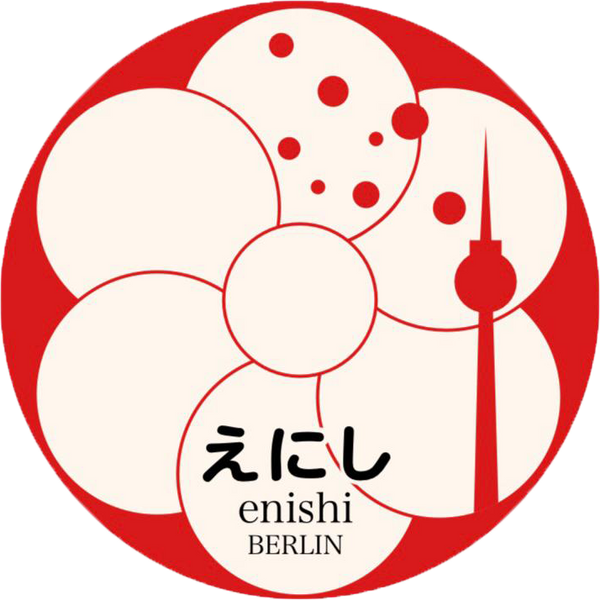-
antique Aizu lacquer ware Japanese soup bowl Without cover
Regular price €18,00 EURRegular price€30,00 EURSale price €18,00 EURSale -
antique Aizu lacquer ware Japanese soup bowl With cover
Regular price €48,00 EURRegular price -
Elegant black lacquer ware bowl with plum design
Regular price €48,00 EURRegular price€58,00 EURSale price €48,00 EURSale -
Vase/TSURUBE for flower arrangement
Regular price €38,00 EURRegular price€48,00 EURSale price €38,00 EURSale -
TABAK case with Horse fittings
Regular price €380,00 EURRegular price€480,00 EURSale price €380,00 EURSale -
Snakeskin cigarette case
Regular price €380,00 EURRegular price€480,00 EURSale price €380,00 EURSale -
INRÔ and KAZUNONETSUKE
Regular price €600,00 EURRegular price€800,00 EURSale price €600,00 EURSale -
Inrô and MANJÛNESTUKE
Regular price €400,00 EURRegular price€600,00 EURSale price €400,00 EURSale -
papier-mache maneki cat,Left hand
Regular price €100,00 EURRegular price -
papier-mache maneki cat, Right hand.
Regular price €100,00 EURRegular price -
Lovely little ebony tortoise figurine.
Regular price €10,00 EURRegular price -
Japanese children's toy, Dendai drum.
Regular price €10,00 EURRegular price€20,00 EURSale price €10,00 EURSale -
Bronze and Japanese mirrors of the Edo period By Hitomi Izumi-no-Mamoru Shigeji
Regular price €100,00 EURRegular price -
Copper/Japanese mirrors of the Edo period by Fujiwara Yoshinaga.
Regular price €150,00 EURRegular price -
Copper/Japanese mirrors of the Edo period by Fujiwara Shigeyoshi.
Regular price €150,00 EURRegular price
Collection: Japanese Antiques
About Japanese antiques, focusing on items from the Meiji to Taisho periods such as figurines, Noh masks, Daruma dolls, Maneki-neko, and Benzaiten figurines:
-
Figurines: Figurines from the Meiji to Taisho periods are often crafted with exquisite detail and represent various aspects of Japanese culture and folklore. These figurines can depict mythical creatures like dragons and phoenixes, legendary heroes, or everyday scenes from traditional Japanese life. They are typically made from materials such as ceramics, porcelain, wood, or metal, showcasing the artistic skills and craftsmanship of the era.
-
Noh Masks: Noh masks are an essential part of Japanese Noh theater, a traditional form of classical Japanese musical drama. These masks are meticulously carved from wood and painted to represent different characters, emotions, and spirits featured in Noh plays. Each mask is carefully crafted to evoke a specific mood or expression, and they are often considered as both works of art and functional theatrical props.
-
Daruma Dolls: Daruma dolls are traditional Japanese talismans that symbolize perseverance, resilience, and good luck. They are typically round, hollow dolls with a simple design, featuring a bearded, red-faced man, often without arms or legs. Daruma dolls are associated with the Buddhist monk Bodhidharma, who is credited with founding Zen Buddhism. Owners of Daruma dolls often paint one eye when setting a goal or making a wish and paint the other eye when the goal is achieved or the wish fulfilled.
-
Maneki-neko: Maneki-neko, also known as beckoning cats or lucky cats, are popular Japanese figurines believed to bring good fortune and prosperity to their owners. These cat figurines are usually depicted with one paw raised in a beckoning gesture and often wear a bib or collar adorned with bells or coins. Maneki-neko come in various sizes, colors, and styles, and they are commonly displayed in homes, businesses, and shops throughout Japan as symbols of luck and prosperity.
-
Benzaiten Figurines: Benzaiten is a Japanese deity associated with water, music, arts, and knowledge, often depicted as a beautiful goddess playing a musical instrument such as a biwa (Japanese lute). Benzaiten figurines from the Meiji to Taisho periods are highly sought after for their intricate craftsmanship and spiritual significance. These figurines are crafted from materials like wood, metal, or ivory and are often adorned with elaborate details and symbols representing the deity's attributes and domains.
Collecting these antique items allows one to not only appreciate the artistic and cultural heritage of Japan but also to delve into the spiritual and symbolic meanings associated with each piece, reflecting the beliefs and values of past generations.
















